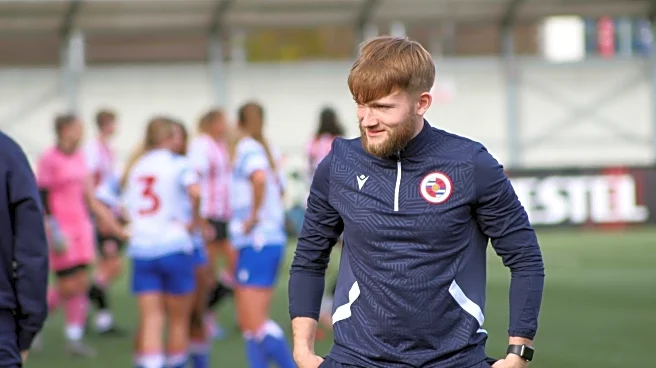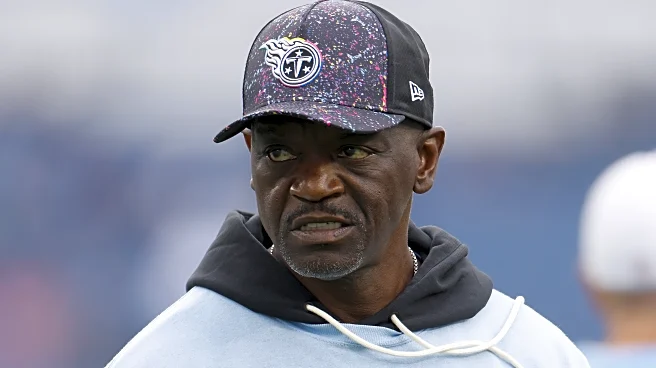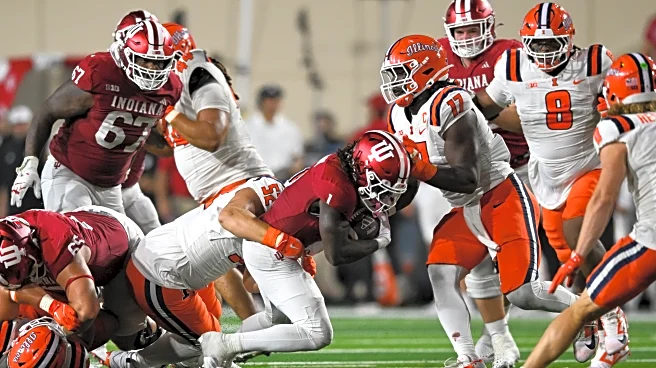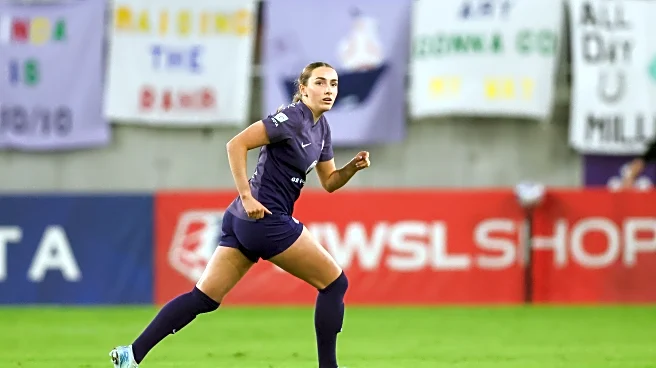Max Scott joined Reading Women team in the summer as first-team coach, continuing his football relationship alongside manager Ed Jackson-Norris, with both having worked together at Maidenhead United Women for
the past couple of years.
Scott kindly made time to talk to The Tilehurst End about not only his football and coaching experiences to date, but also his life experiences: difficult teenage years and how the Community Trust, Premier League Kicks and mentoring from other role models – including Jackson-Norris – not only gave him an opportunity, but also allowed him to thrive.
His resilience and enthusiasm were evident to see and he’s gone from mentee to mentor, becoming an inspiration and role model himself and an example of how to turn your life around.
It was a pleasure to talk to Scott, who was humble, engaging and excited about the future – for Reading and himself. Still aged only 22, so he should be, with a very bright future ahead.
It’s early days but how do you feel the season has gone so far?
“I think coming into an environment and trying to build what is basically a new team together, with so many new players coming into the club, it’s always difficult to start off really hot. But we’ve managed to pick up more wins than losses and have started really positively.
“And, recently, as you know only too well, the club hasn’t been used to winning matches, especially in the women’s team, so it’s good to start so positively, getting a few results, three points and obviously winning the FA Cup qualifying match too.
“I think we all know there’s levels to upgrade but we’ve only just started the journey and already started on winning terms.
“We know where we need to get to and the heights we need to reach if we want to be competing with the teams at the top of the league and doing really well in the cups and areas like that.
“We can already see the progression and hopefully we can keep improving week by week. We lost to Beaconsfield Town but, you know, you can’t be perfect, especially when you’re building the new squad.
“You can see the players starting to gel now, which is nice. You can see them starting to understand who’s where etc, and that takes a lot of time.
“To be honest, I think the start of the season has been pretty good.”
What’s it like being at Reading FC?
“The expectations at Reading are completely through the roof. We expect to be winning games and to be pushing on.
“The support is obviously completely different. You get so much more support and the profile is a lot bigger, so it’s different.
“Obviously, there’s some familiar faces in the team this season but then it’s about how do we play a different way?”
(Some players followed Jackson-Norris and Scott from Maidenhead United.)
“We still play with the same principles, same ideas and the same passion but, now at Reading, we expect to be one of the better teams in the league and expect to dominate the ball a little bit more.
“It’s challenging but really exciting, the future is super exciting!”
You had a challenging start to adulthood, expelled from school in year nine, with your mum passing in the same week. Do you mind sharing details about what must have been a very tough and confusing time of your life?
“I hated school. I got kicked out of primary school, I got kicked out of secondary school. It just wasn’t for me, the environment and the studying and the focussing. I was raw, I was immature and I was an idiot.
“As a kid, I probably hung around with the wrong group, got involved in stuff I shouldn’t have and in things that I’m not proud of. But eventually I sort of managed to find my way to sort things out when I went to college.”
With the support of the Community Trust you completed school, got your GCSEs and, with the support of the Premier League Kicks coaching programme, earned further qualifications
“Leaving school and continuing my education with the Community Trust was one of the best things I’ve done. It just worked for me.
“I decided to go to college at the Reading Community Trust. So I was up at the Dome every day because I just really wanted to get into football.
“I didn’t really know what to do. At the time you think: ‘Oh, maybe I could be a player, but see how things go.’
“But I literally had no direction. At the time, the classrooms were up by the Dome so we would study, train and play football matches on the pitch, five days a week and it was just great.”
Tell us about your pathway into football coaching, how Premier League Kicks helped, and your journey to Reading FC
“In terms of my coaching journey, it’s been really quick. The Community Trust environment and learning had a major impact on me and that’s where I was first introduced to Ed Jackson-Norris, who came in after a year to be our coach for the boys team.
“At the time I was getting lots of injuries. I was really inconsistent in my playing time and Ed just basically gave me an opportunity to try and coach. So, whilst only in my second year, I was coaching my peers and some of the first-year boys.
“And then, at the same time, I started volunteering for the Community Trust’s Premier League Kicks sessions and was just doing whatever I could, whatever was on offer.
“The Community Trust runs it, but pretty much every club in the EFL has a Premier League Kicks programme.
“It’s a huge programme. It influences thousands of kids, it’s honestly such a great programme. It offers free football for young people to just come along, speak to each other, meet their friends and play football, all for free, and is available to vulnerable areas of the community.
“These kids could get to meet coaches, who could be role models and help guide them in the right way. So when I started doing that sort of stuff, in my first year of college, and the coaching, that’s where it began and it sort of grew from there.
“Quite quickly I started to get more opportunities. Once I left college, the Community Trust gave me a full-time role. I must have impressed someone to believe in me a little bit and then I started to get paid (progressing from volunteer to full-time Premier League Kicks coach and then programme co-ordinator).”
Your first step into management was with Eversley & California Football Club?
“Yeah, Ed notified me about an opportunity for Eversley & California Football Club, who were starting up a new under-18s boys team to go play in the Allied Counties divisions. Ed was really encouraging: ‘Just go do it, take the opportunity’.
“It was me and Ryan [Robinson, Reading Women’s goalkeeper coach], who I’ve known for a long while, as we used to play football together from about the age of 13 and 14, and we just jumped into it.
“At the time we were 18 years old, coaching kids just a little bit younger than us, and some of them we knew and had played with us as well.
“So that was sort of a crazy experience. Jumping into a non-league club trying to deal with everything behind the scenes, managing teenage boys and tactics and trying to cut our teeth in the game.
“We weren’t very successful on the pitch but some of the memories we have from that year and during that time are going to sit with me forever. It was a really important time when I learned a hell of a lot.
“After that, I had an opportunity to join Maidenhead United Women’s team with Ed. At the beginning, I was coaching the development team. It was another brand-new and freshly started team, trying to set up the idea and opportunity for young players to have pathway and go on to play first-team football.
“That was quite successful. We managed to create an environment where we could actually push players up into the first team. I think it was 16 players in the first year who made appearances for the first team. Some of them continued on and some of them are now playing with us at Reading.
“And then at the same time I started the Premier League Kicks coordinator role at Reading. So, like I said, everything came really thick and fast. It was just the next opportunity, followed by the next opportunity.
“Last year, I moved up to the first team to be assistant manager under Ed. Again, just loads of learning experiences and I just jumped into it and thought ‘you’ve got to sort of sink or swim’. So hopefully, I’ve done well to swim and move forward and my idea is to keep progressing.
“So yes, it’s been a quick journey where a lot has been thrown at me in such a short space of time.”
You clearly have a great relationship with Ed. Why does that work so well?
“I think it’s because I owe him a lot. He came in to coach the first team. He guided me onto the coaching pathway, he trusted me and he gave me the opportunity to try something and that meant a lot to me.

“Basically, all of my work is to try and repay him. He didn’t have to give me the opportunity, he could have given it to someone else.
“I think we’ve known each other for a while now. We get on because I understand how he works, what he wants, and he also understands me and my character and how I can help a team.
“Ed’s the manager so he obviously has the final say but, as coaches, we need to throw things into the mix. We need to say: ‘Have you thought about this? Have you considered this?’ Or ‘I’ve seen this,’ and then throw your ideas together.
“And it’s not just me, it’s the other coaches as well; they are all very vocal and we all have lots of ideas. You melt that all together and hopefully you come out with the best decision most of the time.”
You have a full-time day job (Max met us straight from work, so we let him off for wearing his QPR tracksuit). How’s it going at QPR College Academy? It sounds like another great opportunity for you
“Yeah, it was about this time last year. I’m someone who can get bored very easily. And if something gets stale or I feel like I’m not progressing and improving, or I’m not in a place where I really be pushed, I feel like I have to take a leap of faith [with something new].
“So this opportunity [at QPR College Academy] came at a time when I wanted to challenge myself again.
“I’ve lived in Reading my whole life and a lot of people have done so much for me and I can’t really put it into words how much they’ve meant in my life.
“But I just thought: ‘I’ve had this opportunity that’s come up and I need to jump and just do it.’ It took me well out of my comfort zone, in fact I’m still sort of out of my comfort zone, but obviously the coaching element was important to me. I wanted to be in a place where I could coach a lot more.
“I specifically coach football a lot more and test myself in terms of management, communication skills and also teaching.

“It’s college education, so ages are 16-19. We have three boys teams and a girls team (around 60 in total on our side) and there’s another side too.
“So there’s a lot of people we see on a daily basis and you begin to build really good connections with these people and really believe in them. It’s like a professional football environment in a way because you’re there every single day, Monday to Friday.
“If you had told me 10 years ago that I’d become a teacher, I’d be like: ‘I don’t believe you,” because I hated school and many of my teachers.
“Now I can see how hard a job they had and I think that helps me in my role because I know what a bad and good teacher looks like. I know what they might be expecting from me and how I can play my role.
“So I’m trying to pass some wisdom, some advice, and try to teach them the way that I [enjoyed] being taught.
“So yeah, it’s funny playing the role where I’m still learning and then I’m trying to teach the next-generation potential coaches as well. And it’s good because I was one of them only a few years ago, so I can try and relate to them.”
What’s it like juggling a full-time day job with Reading Women, training Tuesday and Thursday and matchday on a Sunday?
“I don’t have much free time but I don’t mind as I would say I’m a little bit of a workaholic. I don’t like doing nothing, I have to be constantly activating my brain.
“I’m at the QPR College Academy from 8.30am to 6pm. The difficult part is probably travelling and sitting in the car for so long every day.
“Reading Women train on Tuesdays and Thursdays. On days when we aren’t training my focus is on Reading and I can be watching VEO footage back. Can I be prepping for the next game? Can I be planning training sessions?
“Even the Saturday night, you find yourself thinking: ‘What’s going to happen tomorrow? What can we do? How can we approach this?’
“But yeah, it’s good fun being active like that.”
You’ve done a lot already in a short space of time. What are your career highlights to date?
“The first one that comes to mind was back at Eversley & California. We hadn’t won a single league game all season but we did have a few draws. We were a brand-new team and some people had never played anywhere before but we had such a good team spirit and we had so much fun.
“And then on the last game of the season we played Guildford City away, on a cold night, and we won 1-0. We scored early on and just held on, in a really big battle. That feeling when we won, it was like we’d won the league, everyone singing in the changing rooms. That was probably the first moment I was like: ‘Wow, this is what it feels like as a coach to get success.’
“Leading a Reading team out at the Premier League Kicks final, up at St George’s Park. Ryan and I took a team up there: boys that we had been working with for years who we had seen grow and become men. It was just a really good moment.

“We didn’t win, we were robbed (Max added with a smile), but we still got to the final at St George’s Park. They were wearing the kit, they treated you like professionals and you’re at England’s training camp. To see the joy in those boys’ faces, just having that moment with them was really good.
“There were other highlights during my time at Maidenhead United. The Combined Counties League Cup win in the first year I was with the development team.
“I was also helping a lot with the first team on matchdays, sometimes with training and stuff like that. There was about a six-to-eight-week period when it was just game after game and we were in a really good streak of winning, which was great as the club wasn’t very successful before Ed took over.
“And the Maidenhead United first team won the Berks & Bucks Senior Cup last season.”
(Maidenhead knocked out Reading in the quarter-finals – we’ve forgiven him.)
“So there’s been a lot of success in a short period of time.”
What are the foundations for a strong and successful football team?
“You need trust from your coaches, your players and as a team. You need to believe in each other and in what you’re doing. You need to believe in the mission. So trust is a huge one.
“I also think you’ve got to be real and authentic. You’ve got to be straight to the point. You’ve got to be honest. So that’s a key one as well.
“I would say those two are the main foundations.
“It’s often not really anything you can do on the pitch. In terms of your tactics you can play lots of different ways and get success. But it’s all about that feeling around the club which really brings the winning mentality, that will then lead to success.”
Non negotiables?
“Just what you would expect. The basics really: be on time, be honest, be respected, work your socks off and all that sort of stuff that you would just expect to have from human beings anyway.
“When we were looking at building a squad, you’ve got to take into consideration the personalities of players before the ability. You could be the best player in the world but if they don’t gel or you don’t have the right values, then that spirit and that success you build as a team, it might not be there.
“We’ve got a slightly bigger squad than we maybe would have prepared for. We’ve done that because we’ve had some really hard decisions to make in the summer. We’ve seen a lot of good people and a lot of talented players that we needed to keep hold of because you don’t know who you could lose through the season [through injuries and other circumstances].
Apart from Ed (obviously), are there any particular managers that have inspired you?
“Yes, I would say Ed as I’ve worked with him for a long time and I haven’t had the opportunity to work with many other managers.
“It sounds really boring because they’re big names and I’m also an Arsenal fan, but I’d say Mikel Arteta. I enjoyed watching those documentaries on Amazon which gives you a little bit of insight too.
“And, although I hate to say it, particularly now that he’s at Tottenham, I really like Thomas Frank, his style and the way he brings players together – as well behind the scenes.
“Yes, they’re big names in English football, but you’ve got to look at some of the best to try and replicate what they do. So I just try and take the best bits and try and put that into our own environment.”
You’ve experienced women’s football at tier four and tier five. What are the biggest challenges you face at this level?
“I think it’s brilliant that the women’s game continues to grow because it’s got to go higher. It’s climbing a ladder at the moment and things are getting better.
“The WSL is continuing to get better, along with the quality of football players who are now being sold for lots of money, which is really cool to see.
“At our level, however, we still have lots of challenges: facilities, money, coaches.
“One of the things that really hit home when I was watching the Arsenal academy recently was the level of coaching the boys get at such a young age.
“It’s not the same in the girls’ game. And to try and grow and elevate the quality and the next generation of young players coming through, we have to make sure the coaching is right at such a young level.”
This Sunday, October 12, Reading fans are invited to go on a ’Walk and Talk’ in support of mental health. It starts at the Select Car Leasing Stadium and finishes at Bulmershe Pavilion, ahead of the Royals’ game against Woodley United.









